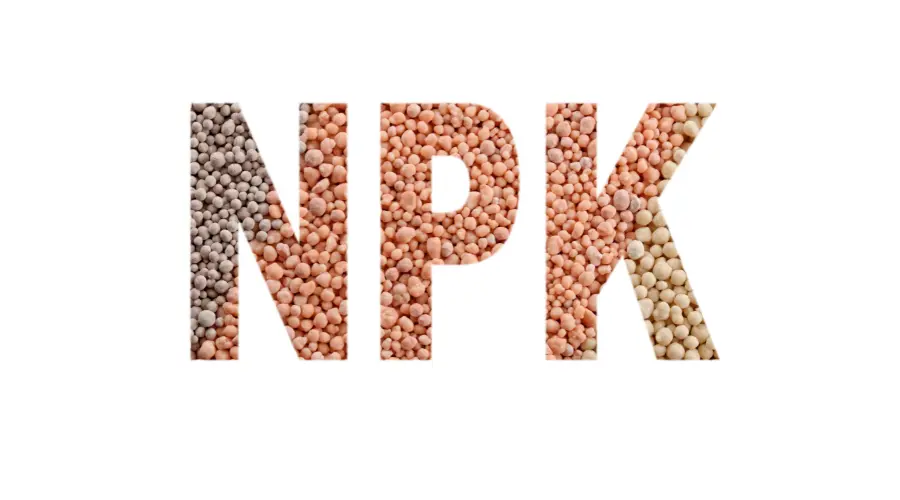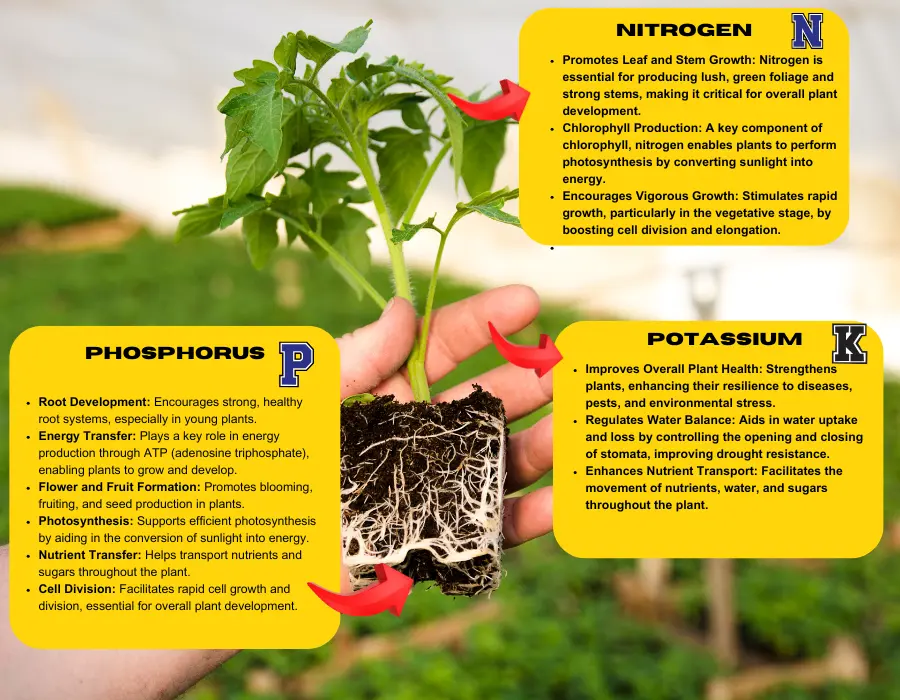Understanding NPK Fertiliser

What is NPK Fertiliser?
NPK fertiliser is a type of plant fertilizer that contains the three primary nutrients essential for plant growth: Nitrogen (N), Phosphorus (P), and Potassium (K). The term “NPK” refers to the chemical symbols of these nutrients, which are critical for different aspects of plant development.
- Nitrogen (N) promotes healthy leaf and stem growth by stimulating chlorophyll production, which is essential for photosynthesis.
- Phosphorus (P) supports strong root development, flowering, and fruiting, playing a key role in energy transfer within plants.
- Potassium (K) enhances overall plant health, improving disease resistance, water regulation, and nutrient transport.
NPK fertilizers are available in various ratios, tailored to meet the specific needs of different plants and growth stages. For example, a fertilizer labeled 10-20-10 contains 10% nitrogen, 20% phosphorus, and 10% potassium. These balanced or specialized formulations ensure optimal plant nutrition for vigorous growth, flowering, and productivity.
Importance of NPK Fertiliser in Gardening
NPK fertilizers play a vital role in gardening by providing the essential nutrients needed for healthy plant growth and overall garden productivity.
- Promotes Strong Growth: Nitrogen (N) fuels leafy growth and vibrant green foliage, making it crucial for vegetables, lawns, and ornamental plants.
- Supports Root Development and Flowering: Phosphorus (P) strengthens root systems, aids in seed germination, and encourages robust flowering and fruiting, which is especially important for flowering plants and crops.
- Enhances Plant Health: Potassium (K) improves plant resilience by enhancing water retention, nutrient transport, and resistance to diseases, pests, and harsh weather conditions.

Benefits of Using NPK Fertilizer
NPK fertilizers provide numerous benefits for plants, ensuring optimal growth and productivity in gardens and crops:
- Balanced Nutrition for Plants: NPK fertilizers deliver the essential nutrients—Nitrogen (N), Phosphorus (P), and Potassium (K)—that plants need for healthy growth, from lush foliage to strong roots and vibrant blooms.
- Improved Crop Yields: By supplying plants with the right nutrients, NPK fertilizers enhance growth and productivity, leading to higher yields for fruits, vegetables, and other crops.
- Enhanced Soil Fertility: Regular application of NPK fertilizers replenishes nutrient-depleted soils, improving overall soil fertility and providing a stable foundation for long-term plant health.
- Customizable for Different Plant Needs: NPK fertilizers are available in various ratios, allowing gardeners and farmers to tailor nutrient levels to specific plant types, growth stages, or soil conditions for optimal results.
Types of NPK Fertilisers
NPK fertilizers come in various forms to suit different gardening and agricultural needs, broadly categorized as follows:
- Chemical vs. Organic Options:
- Chemical NPK Fertilizers: These are synthetically formulated to deliver precise nutrient ratios. They are fast-acting and ideal for quick results, especially in nutrient-deficient soils.
- Organic NPK Fertilizers: Derived from natural sources like compost, manure, fish emulsion, or seaweed extract, these fertilizers release nutrients gradually, improving soil health and supporting long-term plant growth.
- Common NPK Ratios and Their Uses:
- 10-10-10 (Balanced Fertilizer): Suitable for general plant maintenance and overall balanced growth.
- 20-10-10 (High Nitrogen): Ideal for lawns, leafy vegetables, and plants needing lush foliage.
- 10-20-10 (High Phosphorus): Promotes root growth, flowering, and fruit production, perfect for flowering plants and root crops.
- 5-5-15 (High Potassium): Enhances plant resilience, improves disease resistance, and supports flowering and fruit ripening.
By choosing the appropriate NPK type and ratio, gardeners and farmers can ensure their plants receive the right nutrition for healthy growth, robust flowering, and high yields.




 Mosquito Traps
Mosquito Traps